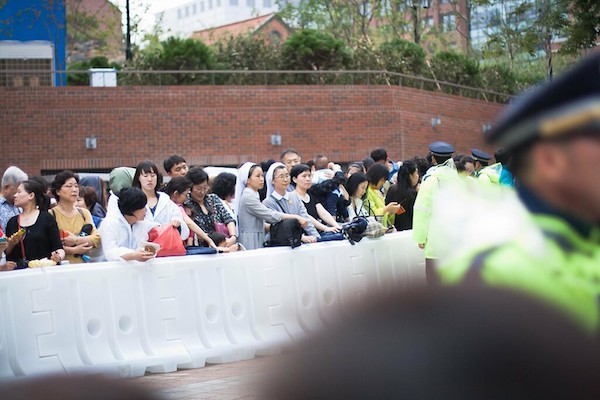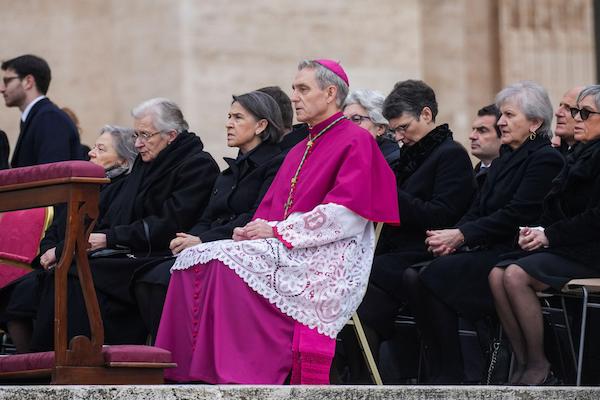The great success of Pope Benedict XVI’s visit to England in September 2010 was alone due to Benedict’s charisma and personality, his secretary Archbishop Georg Gänswein insists.
In an exclusive 35-minute interview for the German Tagespost two days after Benedict’s death, Gänswein described the atmosphere in the team accompanying the Pope before they were about to leave for Scotland.
It was September of the year 2010 which came to be known as the annus horribilis of the German-speaking Church on account of the veritable “tsunami” (in Cardinal Christoph Schönborn’s term) of clergy sexual abuse revelations that swept through it.
“The visit threatened to become a catastrophe as Benedict was seen as the main culprit for the clergy sexual abuse tsunami,” said Gänswein.
“The predictions for the visit were icy. There were even rumours that Pope Benedict would be arrested as soon as he got out of the plane in Scotland.
“Around two hours after we landed, however, the climate – which at first was frosty – changed. And this was solely brought about by the charisma the Pope radiated – his simple personality which made such a great impression.”
In the interview Gänswein also described how hurt Benedict had been by Traditionis custodes, Pope Francis’ 2021 motu proprio in which he reimposed restrictions on celebrations of the Old Mass.
The Pope Emeritus had read Traditionis custodes “with pain in his heart”, Gänswein said.
Francis’ restrictions of the possibilities to celebrate the Old Mass, restrictions that Benedict had relaxed in Summorum Pontificum, his 2007 mots proprio, had been a “decisive turning point” for Benedict, Gänswein pointed out.
By allowing the Tridentine Mass, Benedict had wanted to appease those who had “found a home in the Old Rite” and thus end liturgical controversies and achieve “liturgical peace”. Gänswein noted that many young Catholics today were attracted by the Tridentine Mass.
In an interview with the German edition of Vatican News, Gänswein also described the last days on earth of the late Pope Emeritus.
Gänswein had flown home to Germany on 27 December as Benedict’s condition had been stable. But that night his condition had worsened and Gänswein had immediately flown back to Rome.
The next day Benedict’s condition had first improved but then worsened again so Gänswein had given him the Last Rites and Communion in the form of a little wine. At this point, the Pope Emeritus had not eaten anything for the past two days, Gänswein said.
In his last night only a nurse had been with Benedict. At around 3am she had heard his last words.
He had said “Signore ti amo”, “Lord I love you” in Italian, she said. Benedict had died about four hours later, according to Gänswein.



 Loading ...
Loading ...